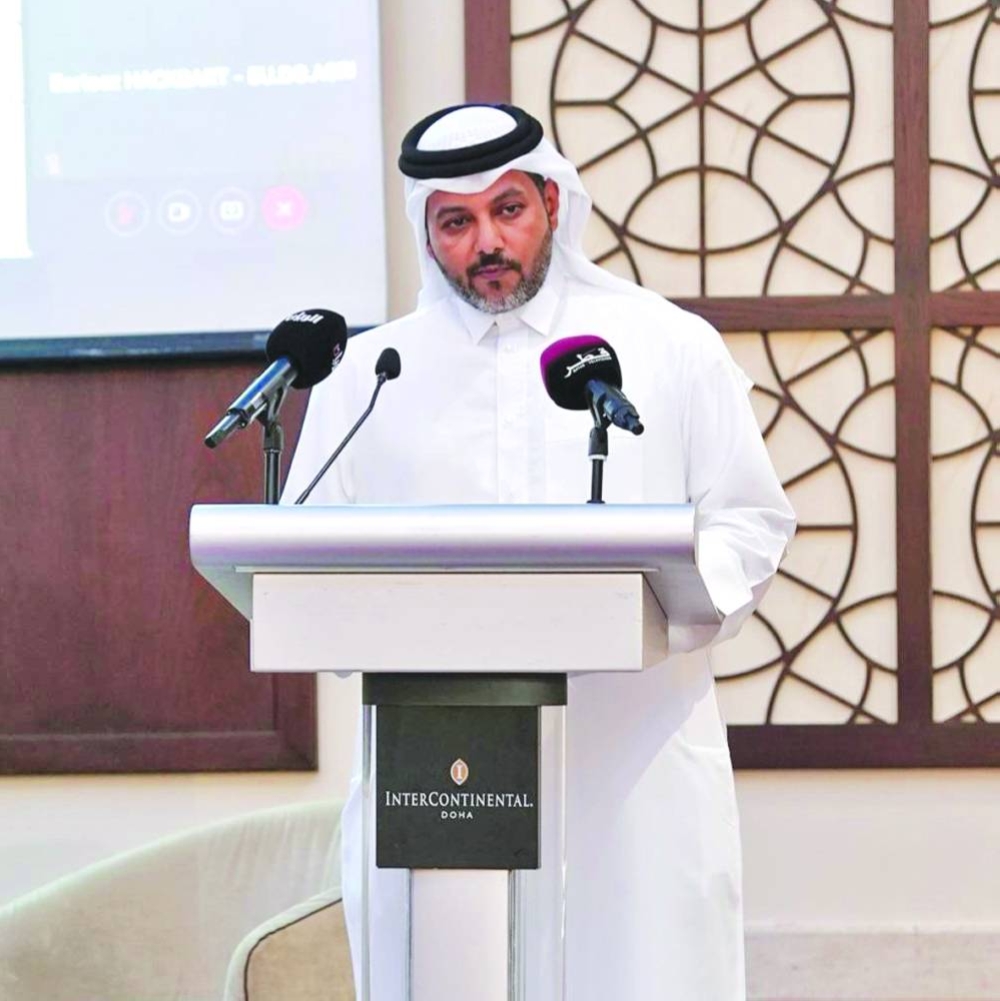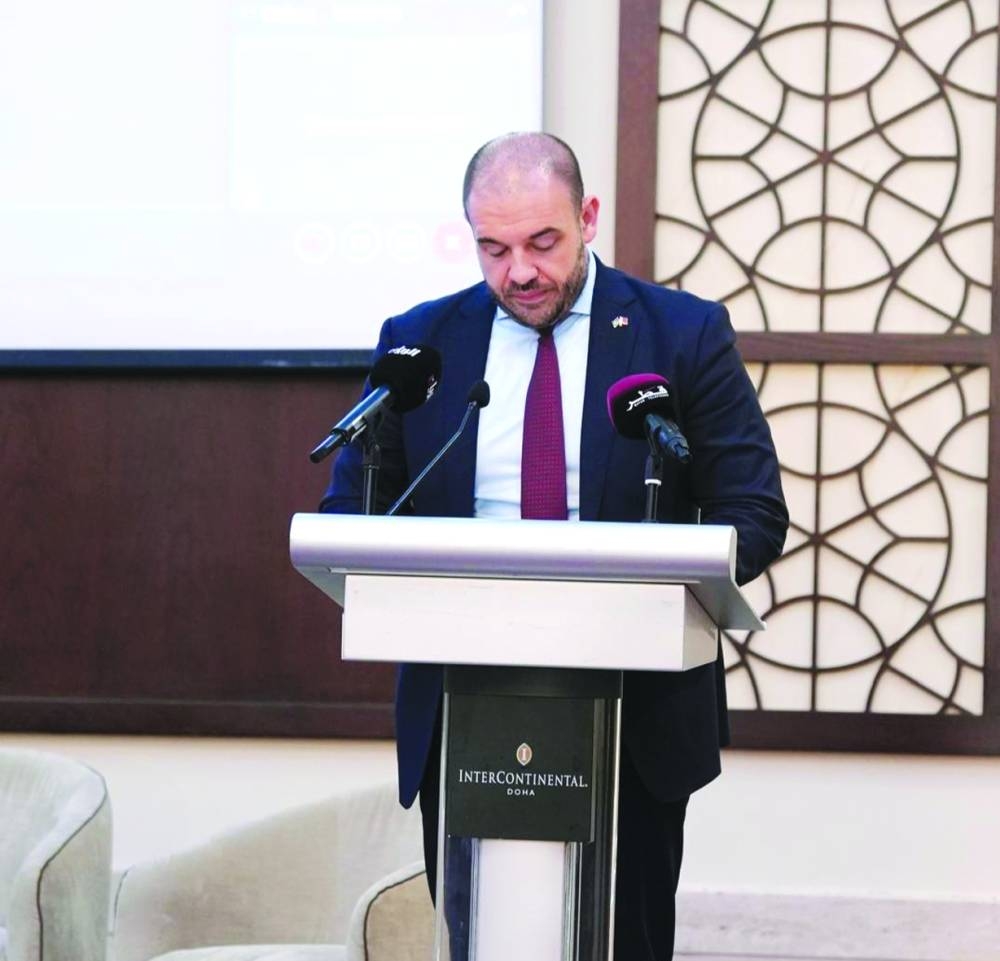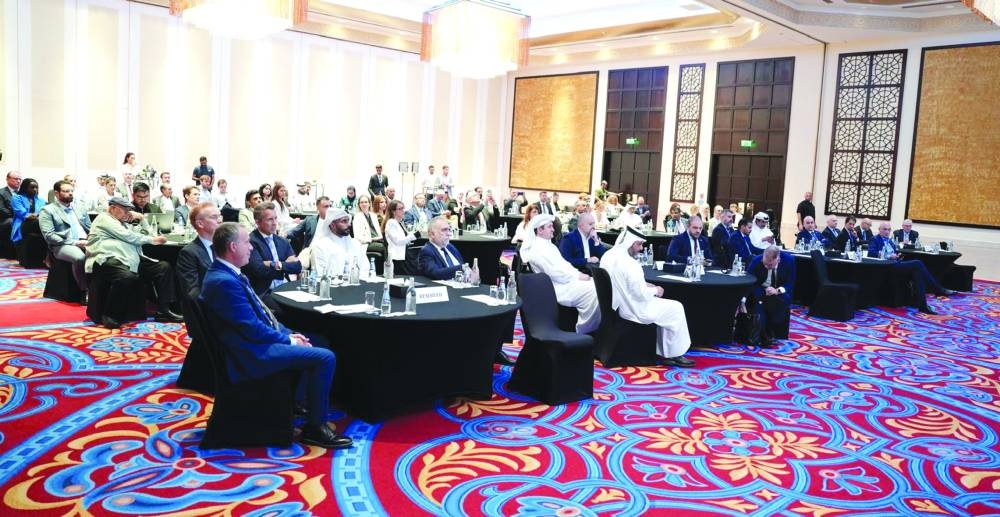The Ministry of Municipality launched on Sunday the "Forging Qatari-EU Partnerships for Sustainable Food Security" event, in partnership with the EU delegation to Qatar.
Part of the EU-GCC economic co-operation activities, the one-day event brought together stakeholders from the public and private sectors, research groups, companies and producers to exchange expertise with the EU tech firms, discuss co-operation prospects, and learn about the latest agricultural technologies, in a bid to develop local production amid climate, soil and water scarcity challenges.
In opening remarks, European Union ambassador to Qatar Dr Cristian Tudor said the event enables both sides to exchange views on the global solutions that boost sustainable and innovative food security efforts.
He hailed Qatar's food security accomplishments over the past decade despite climate challenges and limited arable land, achievements that led to a resilient and sustainable food system. He highlighted the country's impressive local food production increase that led to self-sufficiency in a number of products and reflected its commitment to overcoming obstacles.
Speaking about the prospects for massive EU-Qatar co-operation across agricultural technology, sustainable agriculture, and the integration of renewable energy into food production, Tudor said both sides could harness bilateral collaboration to bolster food security and sustainability, specially with the EU demonstrating unique expertise in key areas such as modern agricultural technologies, innovative trade frameworks, and sustainable investment opportunities.
Qatar is focusing on renewable energy and sustainable agriculture after the emergence of new technologies, such as hydroponics and other less resource-intensive and more climate-adapted technologies, which are in line with the EU's commitment to advance green technologies and sustainable practices, he added.
He added that Qatar's food security strategy sets a roadmap for further progress in raising self-sufficiency, integrating data-driven agricultural practices, and ensuring resilience in food supply chains. He pointed out that the EU is ready to contribute its expertise in the areas of climate change adaptation, data use and sustainable agricultural systems, and that EU countries are keen to explore joint initiatives with Qatar in research and development, as well as trade and investment opportunities that can contribute to achieving these goals.
Meanwhile, Deputy Director of Food Security Department, the Ministry of Municipality, Hamad Hadi al-Hajri, detailed the pillars of the 2018-2023 Strategy, intended for achieving the national food security.
The strategy focuses on international trade, logistics, local market empowerment, self-sufficiency, and strategic reserves. It was prepared following interviews, joint technical discussions and workshops with all the local food system stakeholders.
Seeking a flexible, sustainable and fair food system with an affordable, safe and quality food supply for Qatar's population, the strategy requires the development of more sustainable and comprehensive local capacities in the area of food production, processing, distribution, retailing and fair pricing policies.
Al-Hajri said Qatar maintained a steady improvement in the gross domestic product, achieving self-sufficiency in a number of strategic food products and commodities.
He highlighted the production volume of the multi-sector farms across the country and the agricultural sector initiatives to raise productivity and to support farmers including the agriculture inputs project in collaboration with Hassad Company, and the agricultural and fisheries data digitization project.



